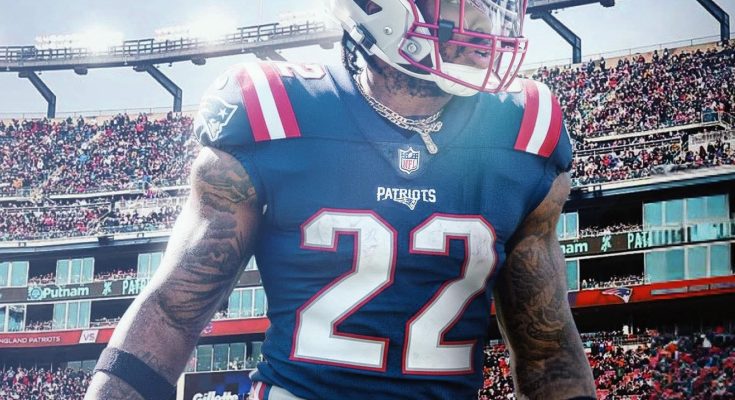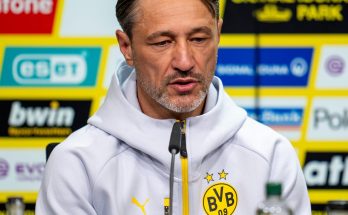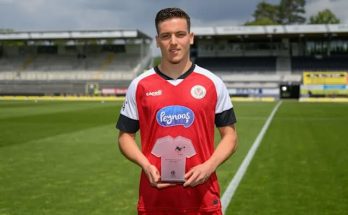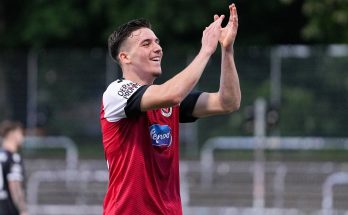In the latest episode of The Bill Simmons Podcast, Bill Simmons floated an intriguing hypothetical trade scenario that has the potential to shake up the NFL landscape, particularly for the New England Patriots and the Tennessee Titans. At the heart of the conversation is running back Derrick Henry, a generational talent who has defined the Titans’ offensive identity for nearly a decade. Simmons suggests a bold move: the Patriots acquiring Henry in exchange for Rhamondre Stevenson and a second-round draft pick. The discussion is layered, with Simmons weaving in football logic, historical ties, and personnel fit, creating a thought experiment that reveals not only team needs but also the complex nature of NFL roster-building.
According to Simmons, the trade could be mutually beneficial. From the Patriots’ perspective, adding Henry would immediately inject firepower into a struggling offense that has lacked identity and punch in recent seasons. Henry, though in his thirties by running back standards, remains a punishing and productive back. His physical running style could offer exactly the type of culture reset Bill Belichick’s successor might want to establish. Henry has proven he can carry an offense for long stretches, something the Patriots have not been able to do since the Tom Brady era ended. Even with questions surrounding the quarterback position and offensive line, Henry could serve as the gravitational force around which the rest of the offense orbits.
From Tennessee’s point of view, the motivations are also clear. Derrick Henry is entering the twilight of his prime, and while still productive, his market value is unlikely to rise from here. Trading him now, while he still commands significant value, could be a proactive way for the Titans to transition toward a younger roster. Rhamondre Stevenson offers youth and versatility—he’s a dual-threat back who can run between the tackles and catch passes out of the backfield. That’s a valuable asset for a Titans team possibly looking to modernize their offense and move away from the ground-and-pound approach that has defined them for years. Pairing Stevenson with a second-round pick gives Tennessee both a functional replacement and a premium draft asset that could be used to address other areas of need.
When Simmons says, “Which pick would catch their eye? Similar to our second?” he’s getting at a critical part of trade negotiations: value calibration. Not all second-round picks are equal. If the Patriots are projected to finish in the bottom half of the league, their second-rounder could be nearly equivalent to a late first-round pick, giving it considerable value. For Tennessee, a high second-rounder could be used to address glaring holes at positions like offensive line, cornerback, or wide receiver. It’s also a valuable chip for trade-ups in the draft. If New England’s second-round pick is slotted around the 35-40 range, it could absolutely “catch their eye,” especially when paired with a young back like Stevenson who can start immediately.
The conversation becomes even more layered when Simmons speculates, “What about Rhamondre and our second?” implying the total trade package could be enough to secure a deal. It’s an acknowledgment that while Henry’s name carries weight, the NFL market for running backs has been deflated in recent years. Top backs rarely garner first-round picks anymore, especially if they’re approaching 30. In that sense, Stevenson and a high second-rounder might represent the best offer Tennessee could expect. Simmons is aware of the shifting economics of the running back position, where production is high but longevity is questionable. That market reality makes this hypothetical deal more than fair—it might be seen as generous, depending on how the Titans evaluate Stevenson’s potential.
An underrated but potentially crucial element Simmons brings up is the personal connection between Mike Vrabel and Derrick Henry. “Do you know with whom you once collaborated? Vrabel, Mike, and Derrick Henry,” Simmons notes, evoking the chemistry and history between the Titans’ head coach and his star player. There was a time, Simmons points out, when that connection was something special—Henry was the engine of the Titans’ offense, and Vrabel was the leader who trusted him with the load. That relationship led to playoff runs and a consistent offensive identity. It’s not always easy to move on from that kind of bond, and Simmons seems to suggest that while the business side might dictate a trade, the emotional and personal component cannot be ignored.
This is where Simmons the analyst overlaps with Simmons the storyteller. He’s not just breaking down cap numbers or rushing yards—he’s painting a picture of a relationship, a team culture, and a potential crossroads. If Vrabel greenlights a Henry trade, it could signal a turning point in his tenure with Tennessee. It might mean the Titans are truly entering a rebuild or at least a significant retool. For New England, acquiring Henry could signal an attempt to speed up their post-Brady rebuild, showing that the team is still in win-now mode, or at least trying to provide a competitive product as they find long-term answers at quarterback and wide receiver.
Simmons’ tone throughout the segment blends speculation with strategy. He isn’t merely throwing out a fantasy football trade; he’s acknowledging what both teams are trying to accomplish. For the Patriots, the offense has been stale. Even with moments of promise from Stevenson, there’s no consistent threat that opposing defenses fear. Henry would change that overnight. He would demand eight-man boxes, freeing up space for whatever passing game New England can cobble together. He would allow the team to dominate time of possession, something Belichick always valued. For a team trying to establish a new identity post-Belichick, Henry might be the ideal transitional figure.
Then again, there’s risk on both sides. Derrick Henry has mileage. While he’s largely avoided catastrophic injury, his workload has been enormous. Running backs don’t usually age well after 30, and the shelf life for power backs like Henry is historically short. Simmons, while clearly intrigued by the move, doesn’t ignore that reality. If Henry were to get hurt or simply decline rapidly, the Patriots would have parted with a valuable second-rounder and a promising young back for a short-term gamble that didn’t pay off. For a franchise still trying to climb out of the post-Brady valley, that’s a dangerous wager.
The Titans, meanwhile, would be betting on Stevenson’s continued development. He’s shown flashes—strong vision, pass-catching ability, and good contact balance—but hasn’t had to carry a full load consistently. Could he become the featured back in Tennessee’s offense? That would depend heavily on how the Titans want to evolve. If they’re moving to a more balanced or pass-first approach, Stevenson fits that mold better than Henry. He’s more versatile and could be a three-down back in the right system. And then there’s the second-round pick—a tantalizing chip that could accelerate a rebuild or be flipped for an established player.
The hypothetical trade raises a broader question Simmons doesn’t explicitly answer but certainly hints at: What do the Patriots want to be? Are they trying to build a new foundation slowly and patiently, or are they still clinging to the idea of winning now, even without a top-tier quarterback? Acquiring Henry leans toward the latter. It’s the kind of move you make when you still believe in the strength of your culture and coaching to elevate a team. If the Patriots believe they’re closer to relevance than the standings suggest, Henry becomes a symbol of that belief.
And what about Vrabel? Simmons’ mention of Vrabel isn’t incidental. The former Patriots linebacker has deep ties to New England, and his name has often come up in discussions about potential coaching successors or future reunions. Could this trade be a prelude to something larger? A testing of waters between front offices? A subtle olive branch or connection between two franchises with shared DNA? Simmons doesn’t say that outright, but the subtext is rich. The NFL is, after all, a league of relationships as much as it is of talent.
As the segment winds down, Simmons circles back to the emotional heart of the matter. “They need a running back, so they had to take Rhamondre,” he says, implying that the Titans would almost have no choice but to accept the deal if it came across their desk. The logic is sound—they’d be filling an immediate need while adding a draft asset. But Simmons also seems to acknowledge the human element—the idea that Henry’s departure would mark the end of an era in Tennessee. It’s not just a trade; it’s a torch-passing.
In the end, Simmons’ hypothetical isn’t just about two players and a pick. It’s about vision, timing, and identity. It’s about the Patriots trying to reassert themselves in the AFC and the Titans trying to evolve without losing what made them unique. It’s about Mike Vrabel and Derrick Henry, yes—but also about what happens when teams face the hard truth that the present can’t last forever. In that space, between nostalgia and necessity, is where trades like this are born. And whether it ever happens or not, Simmons has done what he does best: spark a conversation that feels just plausible enough to linger in the imagination long after the podcast ends.



